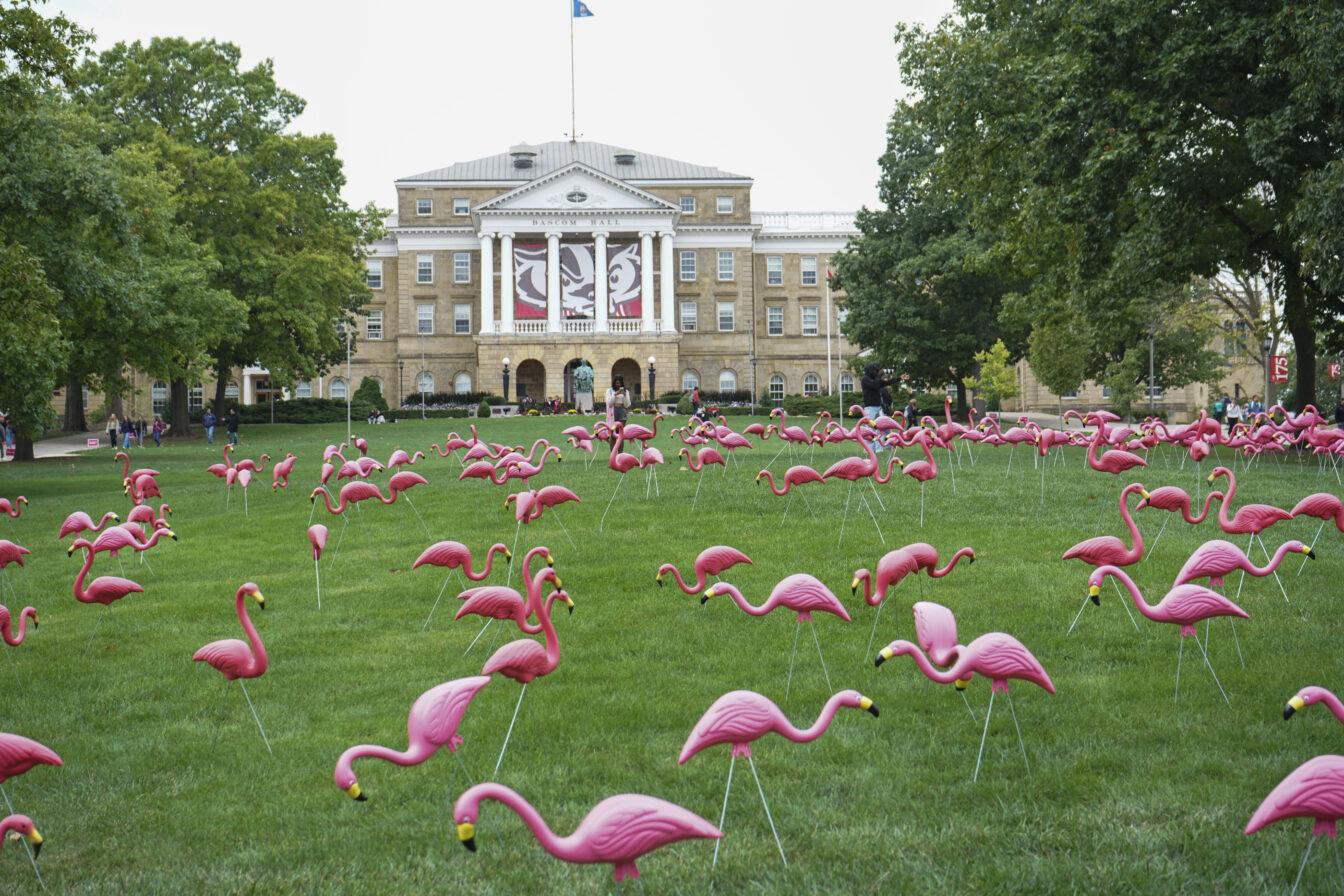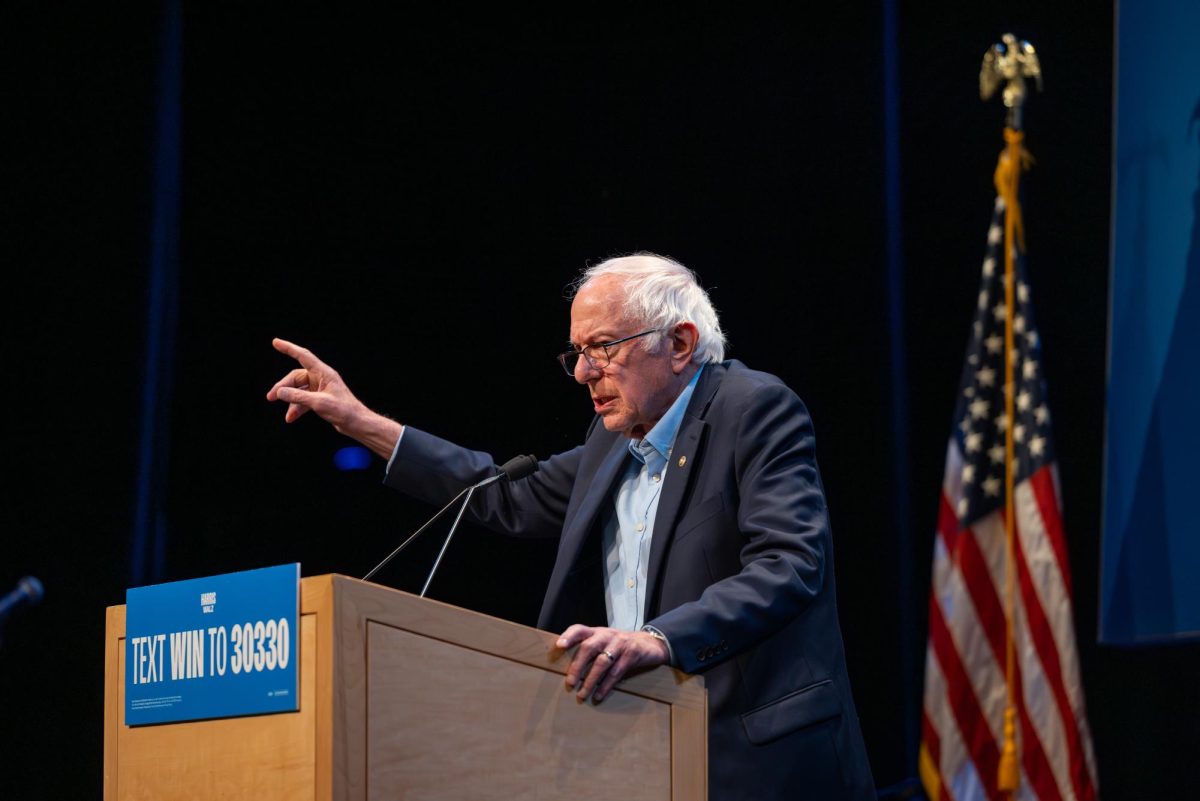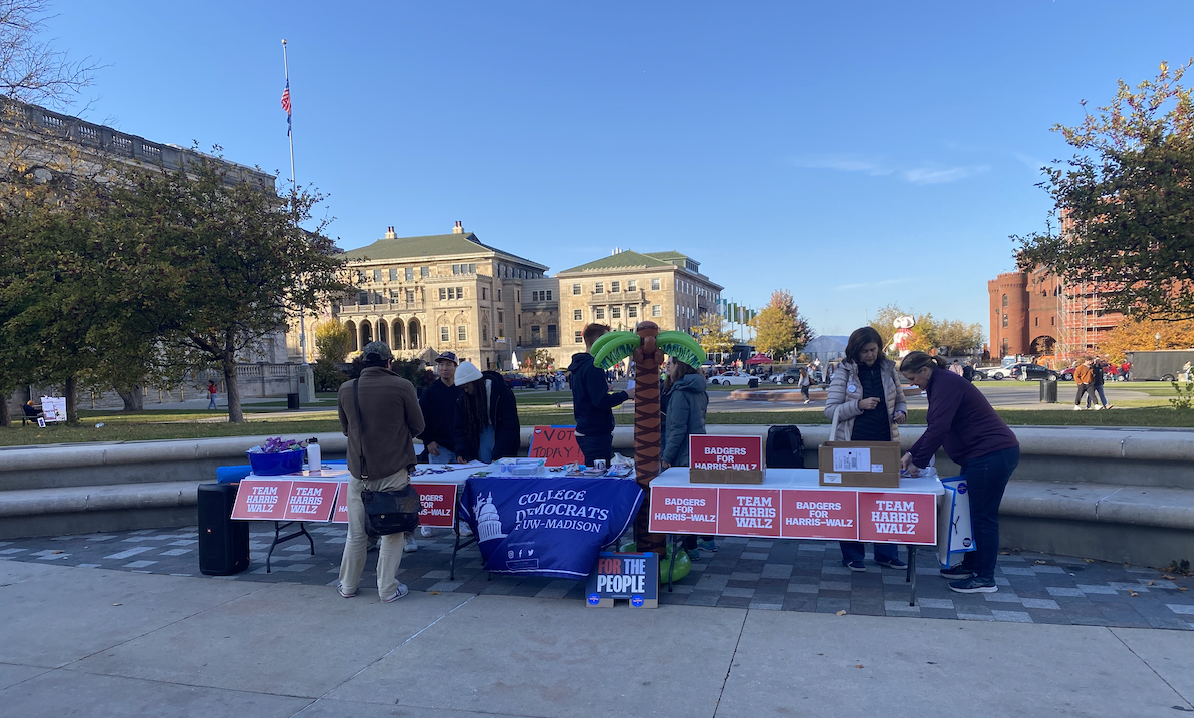Author Salman Rushdie visited the Orpheum Theater Tuesday night as part of the University of Wisconsin’s Distinguished Lecture Series.
Rushdie became most famous after his 1989 novel, “The Satanic Verses”, resulted in the Iranian government’s Ayatollah Khomeini ordering a fatwa calling for his death. Even though this “unfunny Valentine,” as Rushdie calls it, may have brought him into the spotlight to many Western readers, he urged the packed audience to forget that. He went on to say that if he had the power to not have been a target for radicals, he would, saying it was “black fame” and not fun.
Rushdie’s lecture mainly stayed away from the infamous “Verses” incident, other than a brief mention that only one of the two leaders involved are still currently alive. He did offer some commentary on other currently infamous events, joking about the idolatry of celebrities and the current Bush administration.
Rushdie brought up these issues to convince the audience that the world has dipped into the surreal, which is a way Rushdie also says he responds when critics and fans alike say his books’ characters are fantastic.
“The world stopped being realistic,” he said. “Haven’t you noticed how weird things are lately?”
Rushdie commented on the “phenomenon of maximum celebrity,” implying that Arnold Schwarzenegger was elected governor of California for his celebrity rather than for his politics, and this is a change from the life-long politician stereotype who get their power from money, connections and ties with the mafia.
“Is that so bad?” Rushdie asked. “Is [corruption] worse than having big muscles?”
The writer turned to his view of politics and related them to fictional writing. Rushdie feels that fiction writers who tell untrue stories do so in order to uncover a great truth, whereas the “truths” that politicians speak are fictional.
“The official truth is untruth; novel holds truth,” Rushdie explained.
Rushdie, who has had experience with both an extremely private and public life ? he was sheltered for nearly a decade by the British government ? added that another problem in current society is the lack of a clear division between the realms of public and private life. He explained that the “explosion into the private life” is a change from the older times where people’s character led to their destiny.
Now, Rushdie stressed that many things determine a person’s fate with no connection to their character. For this example, Rushdie cited the September 11, 2001, attacks, saying the 3,000 people who died had no choice, and the tragedy was not a reflection of their character.
Rushdie did not limit the influence of people’s private lives to terrorists, but to economists or a variety of “people you don’t know about in a room you don’t know of.”
One of the final points of his lecture was the issue of free speech, where Rushdie argued that the division in this country should not make people uneasy to speak their minds.
“The defense of freedom of speech begins ? not ends ? when somebody says something you really can’t stand,” he said.
Area man Rollin Christianson attended the lecture because he enjoys Rushdie’s work, but more importantly, followed his situation with the Iranian government.
“It will be interesting to see what he has to say,” Christianson said.
UW junior Maggie Tracz attended because she is familiar with his writing, but also is interested in hearing his beliefs, though she might not agree with them.
“It’s essential to learning,” said Tracz, a political science major. “It’s just an eye opener.”
The lecture was followed by a question and answer session. The Muslim Students Association had a table set up outside the lecture hall not to protest the lecture, but to provide an alternative to some beliefs that Rushdie may not hold about Islam, sympathizing with Rushdie after his struggle with the Ayatollah.







